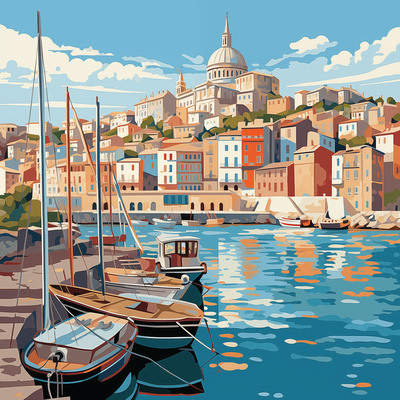What do you think?
Rate this book


Paperback
First published January 1, 1995








«Αυτή είναι η ιστορία της Μασσαλίας. Η παντοτινή. Μια ουτοπία. Η μοναδική ουτοπία στη γη. Ένας τόπος όπου ο καθένας, όποιο κι αν ήταν το χρώμα του, μπορούσε να έρθει μ’ ένα καράβι ή μ’ ένα τρένο, με μια βαλίτσα στο χέρι, χωρίς δεκάρα στην τσέπη, και να γίνει ένα μ’ όλους τους άλλους. Μια πόλη όπου μόλις πάταγε το πόδι του στο έδαφος, ο κάθε άνθρωπος μπορούσε να πει: «Εδώ είναι. Στον τόπο μου βρίσκομαι.»
«Αργότερα, στην παραλία, με ρώτησε πολλά για τη ζωή μου, για τις γυναίκες της ζωής μου. Ποτέ μου δεν κατάφερα να μιλήσω για τις γυναίκες που αγάπησα. Ήθελα να κρατάω για μένα τις αγάπες που είχα εντός μου, να τις προστατεύω. Όταν τις αφηγείσαι, νάσου ξανά στην επιφάνεια οι τσακωμοί, τα δάκρυα, οι πόρτες που κλείνουν απότομα, δυνατά. Και, φυσικά, οι νύχτες που ακολουθούν μέσα σε σεντόνια τσαλακωμένα όπως η καρδιά σου. Δεν το ‘θελα αυτό. Ήθελα οι αγάπες μου πάντα να ζουν με την ομορφιά της πρώτης ματιάς, το πάθος της πρώτης νύχτας. Την τρυφερότητα του πρώτου ξυπνήματος.»



